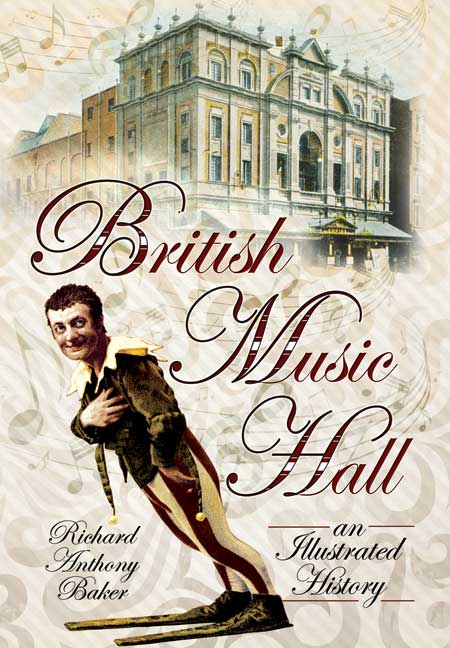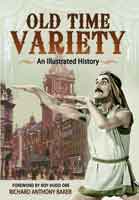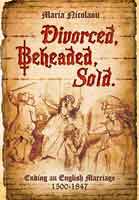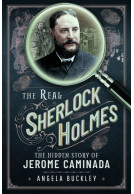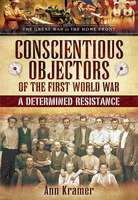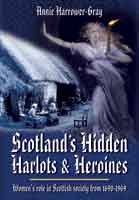British Music Hall (Paperback)
An Illustrated History
Imprint: Pen & Sword Social History
Pages: 304
Illustrations: 100
ISBN: 9781783831180
Published: 31st May 2014
Last Released: 11th March 2022
(click here for international delivery rates)
Need a currency converter? Check XE.com for live rates
| Other formats available | Price |
|---|---|
| British Music Hall ePub (40.6 MB) Add to Basket | £6.99 |
'The music hall ...had no place for reticence; it was downright, it shouted, it made noise, it enjoyed itself and made the people enjoy themselves as well.' W.J. MACQUEEN POPE
Music Hall lies at the root of all modern popular entertainment. With stars such as Marie Lloyd, Harry Lauder and Dan Leno, it reached its glorious, brassy height between 1890 and the First World War. In the first book on this subject for many years, Richard Anthony Baker whisks us off on a colourful and nostalgic tour of the rise and fall of British music hall.
At the beginning of the nineteenth century people sang traditional songs in taverns for entertainment. This was so popular that rooms started to be added to inns for shows to be staged, and, before long, songs were being specially composed and purpose-built theatres were springing up everywhere.
Britain's working class had, for the first time, its own form of public entertainment and its own breed of stars. The colour and vitality attracted serious writers and artists, as well as the future Edward VII, and music hall became simultaneously the haunt of the working classes and the avant-garde.
Including stories of a clergyman who wrote music-hall sketches, a hall in Glasgow where luckless entertainers were pulled off stage by a long hooked pole, and Cockney dictionaries that helped Americans understand touring British performers, this book is a hugely engaging slice of social history, rich in humour, tragedy and bathos.
As featured on BBC Radio Lincolnshire and in the Sunderland Echo.
As featured in
Strong Words
Rating: 5 out of 5 stars
NetGalley, Gordon Jefrries
A book that is well researched well written and very enjoyable to read. Though for of facts it does not become boring at any time. For anybody interested in the theatre in any way this book is one to have on your bookshelf.
The British Music Hall is a fascinating book and mixes facts. anecdotes and reminiscences to good advantage. It is well-illustrated, has ample notes, and a useful bibliography.
Penniless Press
Read the full review here
While the days of the Music Halls were long departed before I ever set foot in the UK, the stories about those wild and woolly days were rife. There were still performers who cut their teeth in this medium so it was fascinating to read a history of the Music Hall from its earliest beginnings to its final demise.
NetGalley, Susan Johnston
By modern standards, what seemed provocative and risqué might nary garner a fleeting blush but in the 19th and early 20th Century, they pushed the boundaries to and sometimes beyond the limits. But the Music Hall changed entertainment forever. Whereas theatrical efforts had become the purview of the monied classes with opera and theatre, the Music Hall was unabashedly common. It sought to entertain the poor and lower classes who had little in their lives to cheer them. Much of the talent came from those same people. So while it may not have changed society, it did impact it.
Show biz is peopled with colourful and eccentric folk. Many of them were generous to a fault and died in poverty. Some were able to take their earnings and carve out a fair legacy. But as you read through some of the songs and lyrics, you will astounded by how many of them have survived through today even if only in historical movies and tv.
Four purrs and two paws up.
British Music Hall by Richard Anthony Baker has just been re-released by Pen & Sword Books. It has an introduction from the late Roy Hudd. Roy was President of the British Music Hall Society, so he knew his stuff – and he writes The book is a great read, whether you are into music hall or not.”
NetGalley, Colin Edwards
The book opens with a brief history of musical entertainment at pubs in the first half of the nineteenth century. The term “music hall” appears to been first used about a room attached to the Grapes Tavern in Southwark in 1847. From then on, the amateurs faded away and professionals took over.
The book comprises lots of chapters, mostly about the artistes but also the songwriters and the agents or managers. We even get a page or two about Laura Ormiston Chant, who was the Mary Whitehouse of her day, seeking to ensure that the Empire, Leicester Square, failed to have its licence renewed. Baker shows us the transition of the music hall from something assumed (usually by people who never stepped into one) to be dens of vice; through their growth and mass popularity; through establishment acceptance with Harry Lauder being the first popular entertainer to be knighted; to its decline from the 1920s onwards.
The first attempt to revive music hall was in the 1930s, when Lew Lake reckoned that variety shows “were too refined for an audience that had grown up with the ‘vulgar but honest’ music hall.” Baker brings us up to date by covering the genesis of the British Music Hall Society and the capability of modern technology to transfer recording from wax cylinders and 78s onto CDs, making the recordings clear and fresh.
I enjoyed the book so much, I went straight onto t’Internet and ordered several CDs of recordings first made over 100 years ago. In a few days, I’ll be listening to the songs and re-reading the biographies of the singers – because I’m sure they’ll all be mentioned in Baker’s comprehensive book.
Referenced in 'Resources' part of The Magic of Music Hall article
WDYTYA? Magazine, August 2019
As featured in
Hartlepool Mail
The book unfolds almost like an entrancing night out at the music hall, each chapter an enjoyable and memorable turn.
The Call Boy - Official Journal of the British Music Hall Society
A book that is colourfully enjoyable, packed solid with valuable information and capable of reviving such cheerful memories is to be highly prized.
In British Music Hall, author Richard Anthony Baker charts the rise and fall of this form of popular entertainment, exploring the colourful lives of performers, the well-known songs which found their way into music hall folklore and of course, the hundreds of music halls which were packed to the rafters each time a new show debuted. There are anecdotes of well-loved stars such as Will Fyffe and Harry Lauder, as well as information on the various venues around the country.
Scottish Memories magazine
As seen in the Leicester Mercury.
Leicester Mercury
Mr Baker's book is well-illustrated and provides a wonderful overview of the venues, artists and characters of this very British form of entertainment...a fun read.
Leicester Mercury
Leigh author Richard Anthony Baker has now firmly established himself as the foremost authority on the British music hall with his latest book, 'British Music Hall – an Illustrated History'. It is all there in this 261-page book, fully illustrated – and with a hilarious note to end the book entitled the 'Final Curtain' in which the great comedian Jimmy Wheeler answered the question: 'What killed music hall?' His analysis is worth the cost of the book alone. Make sure you read it.
Leigh Times
About Richard Anthony Baker
During 30 years at the BBC, Richard Anthony Baker wrote and presented music hall and variety programmes for Radios Two and Three. For Radio Five Live, he devised the world’s first obituaries programme, Brief Lives, producing its first 300 editions. In 1990, he published a slim biography of Marie Lloyd and in 2011 An Old Time Variety followed. He contributes regularly to The Stage and the British Music Hall Society’s magazine, The Call Boy.







